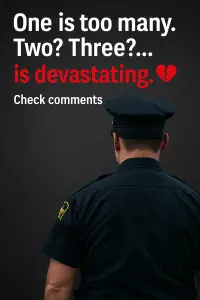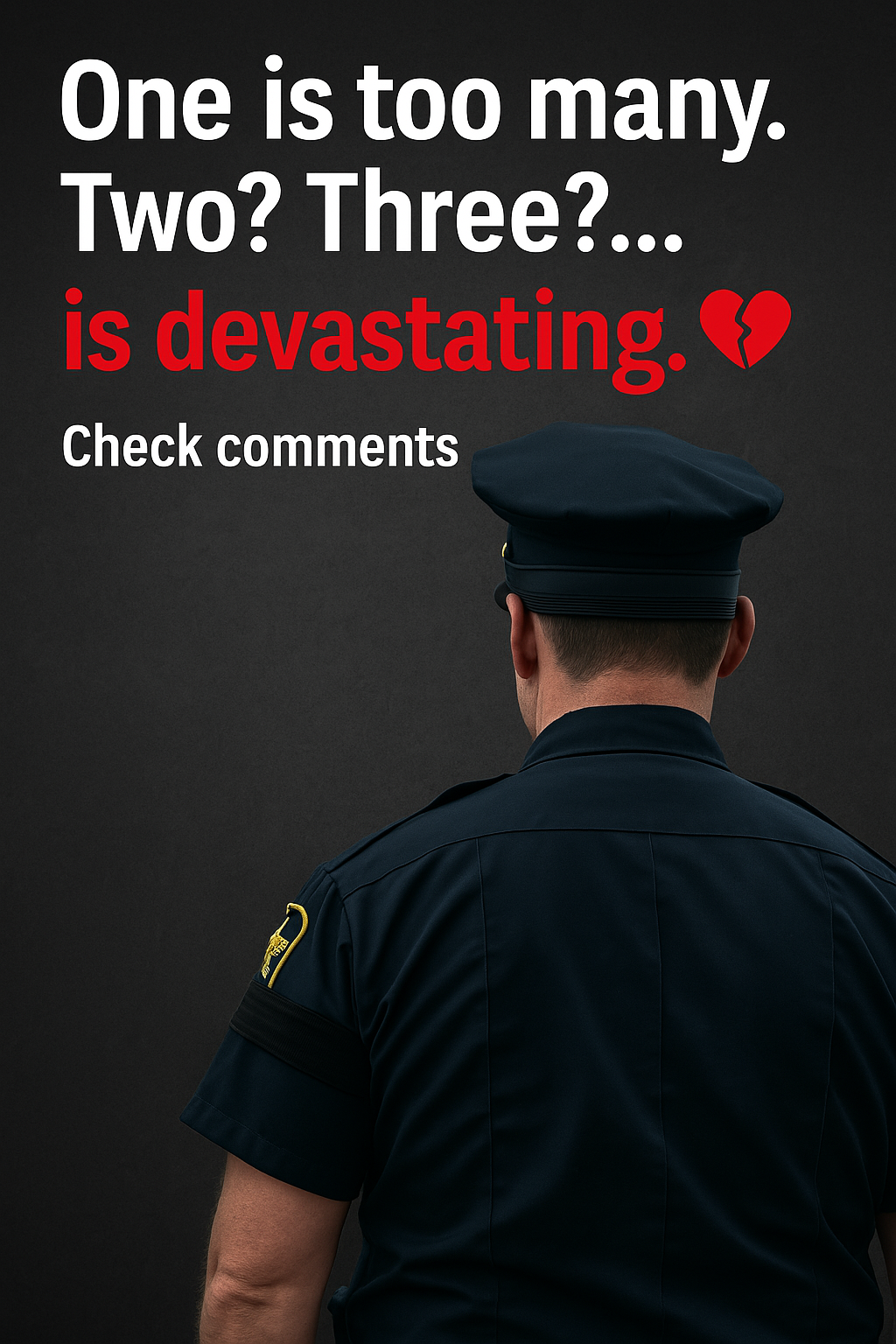
In a state known for its strength and resilience, a silent crisis is unfolding within the law enforcement community. In just over six weeks, four current and former deputies linked to the Harris County Sheriff’s Office (HCSO) in Texas have taken their own lives — a chilling sequence of tragedies that is forcing a long-overdue conversation about mental health in uniform.
Behind the badges and duty lies an emotional toll few outsiders fully grasp — and these recent losses are a heartbreaking reminder of how that toll can become too heavy to carry.
Four Lives Lost. One Department in Mourning.
The deaths began on February 26, when former HCSO deputy Long Nguyen, 58, died by suicide. Less than a month later, Deputy Christina Kohler was reported missing, prompting a regional CLEAR Alert due to concerns for her well-being. Later that same day, March 13, she was found deceased. Just days later, former deputy Maria Vasquez, 42, also took her own life in her southeast Houston home. And in the same six-week window, a fourth former deputy, William Bozeman, was also confirmed to have died by suicide.
Four lives. Four families shattered. Four reminders that the badge, while a symbol of courage, can sometimes conceal silent suffering.
Remembering Deputy Christina Kohler
Christina Kohler, 37, had served with the HCSO since 2018, most recently working as a court bailiff. Known for her quiet professionalism and dedication to service, her death came as a profound shock to those who worked alongside her.
Constable Mark Herman paid tribute to her memory, stating:
“Her name and her life absolutely deserve to be remembered for her commitment to our profession.”
Her disappearance sparked an immediate and widespread effort to find her — a sign of how deeply her peers cared. Her loss has since left a lasting scar on a department already stretched thin by the weight of the job.
Former Deputy Maria Vasquez: A Sudden Goodbye
Only days after Kohler’s death, the community was struck again — this time by the loss of former HCSO deputy Maria Vasquez. Having left the department just a few months earlier in December 2024, she had continued to be close with former colleagues and was well-regarded for her strength and compassion.
In a touching tribute, the HCSO Community Engagement Division wrote:
“Heaven has gained two beautiful angels. May their memory be a blessing, inspiring strength and comfort to their friends, family, and coworkers during this difficult time.”
The Unseen Weight of the Badge
While each life lost is unique, the patterns are becoming impossible to ignore. Law enforcement professionals, especially those in high-stress, front-line roles, are grappling with levels of trauma and pressure that can have devastating psychological effects.
According to a 2024 study following data from 2016–2022, more than 1,200 law enforcement and correctional officers died by suicide during that period. Over half were local police officers, and nearly 20% were sheriff’s deputies — like those recently lost in Texas.
This is not just a Harris County issue. It’s a national crisis.
Dr. Ron Acierno, director of the Trauma and Resilience Center at UTHealth Houston, sees the impact firsthand.
“There’s still a culture of toughness,” he explains. “A belief that seeking help shows weakness. Many officers don’t even know resources exist, or they believe it won’t actually help.”
Dr. Acierno’s team specializes in therapy tailored to first responders — providing tools to manage trauma through evidence-based treatment approaches that focus on recovery, not just coping.
“This Job Follows You Home”
Dr. Thomas McNeese, who leads the Behavioral Health Division within the Harris County Sheriff’s Office, echoed these concerns, emphasizing that the emotional demands of law enforcement don’t end when the shift does.
“This job weighs on people. It doesn’t just affect you during your shift — it follows you home,” McNeese said.
“That’s why it’s so important to reach out, to talk, and to know you’re not alone.”
McNeese and his team have been working to expand peer support programs and reduce the stigma that often prevents officers from asking for help. But resources remain limited, and the need continues to grow.
A Message From Leadership: “You Are Needed”
Following the string of recent losses, Harris County leadership has stepped forward with emotional appeals to those still serving.
Constable Sherman Eagleton addressed his officers directly:
“You are important. You are needed — even when you feel like you’re not. Please take care of yourselves and each other. Don’t carry this alone.”
And from Jose Lopez, president of the Harris County Deputies Organization:
“We’re working hard to make sure our officers have access to the mental health tools they need. But we can’t do it alone. It takes all of us — supporting, listening, watching out for one another.”
What Comes Next: A Call for Change
The deaths of these four deputies have sparked widespread grief, but also reflection — and, hopefully, lasting change. Law enforcement officers are expected to be pillars of strength, yet the emotional price they pay is often unseen, even by those closest to them.
Mental health care in law enforcement can no longer be optional. It must be embedded in training, leadership, and daily operations. Seeking support should be as routine as checking equipment before a shift.
This is not just about avoiding tragedy — it’s about building a culture where those who serve to protect us are also protected.
Because one loss is already too many.
And four, in just six weeks, is a crisis we can no longer ignore.







6 Comments
u99gwd
I don’t think the title of your article matches the content lol. Just kidding, mainly because I had some doubts after reading the article. https://accounts.binance.com/es-AR/register?ref=UT2YTZSU
Can you be more specific about the content of your article? After reading it, I still have some doubts. Hope you can help me.
so much wonderful info on here, : D.
Thanks for sharing. I read many of your blog posts, cool, your blog is very good.
Hello very cool site!! Man .. Beautiful .. Amazing .. I will bookmark your web site and take the feeds also?KI’m glad to find so many helpful information here in the put up, we’d like develop more techniques on this regard, thank you for sharing. . . . . .